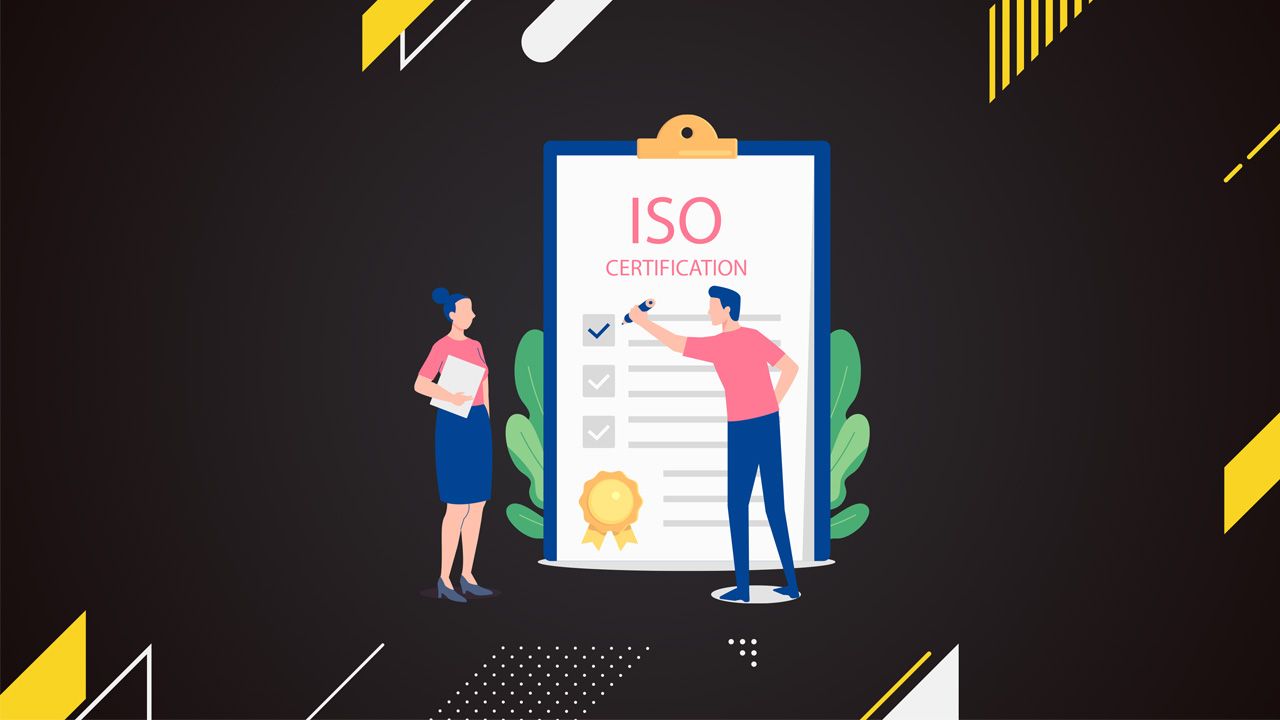
How to Get ISO Certification for Software/IT Companies in Bangladesh: A Complete Guide
Learn how to get ISO certification for your software company in Bangladesh. Explore the benefits of ISO 9001, ISO/IEC 27001, and ISO/IEC 20000-1 certification.
The Information Technology (IT) sector in Bangladesh is rapidly growing and becoming one of the most dependable IT outsourcing markets globally.
This surge in demand for IT services has positioned Bangladesh as a leader in the software development industry. Software and IT service companies must acquire relevant ISO certifications to remain competitive and meet international standards. ISO certification shows that your company follows international standards and is dedicated to quality, safety, and ongoing improvement.
In this guide, we’ll take you through the ISO certification process for software companies in Bangladesh, including the ISO 9001:2015, ISO/IEC 27001:2013, and ISO/IEC 20000-1:2018 certifications, highlighting their importance and how to obtain them.
What is ISO Certification for Software/IT Companies?
ISO, short for the International Organization for Standardization, is a worldwide organization. It develops and publishes standards for a wide range of industries. These standards help organizations ensure their products and services meet customer needs while maintaining high levels of quality, safety, and efficiency.
![]() For software development companies in Bangladesh, ISO certification is essential for building trust, ensuring quality, and maintaining compliance with both customer and regulatory requirements.
For software development companies in Bangladesh, ISO certification is essential for building trust, ensuring quality, and maintaining compliance with both customer and regulatory requirements.
The key ISO certifications for IT companies are:
- ISO 9001:2015 - Quality Management System
- ISO/IEC 27001:2013 - Information Security Management System (ISMS)
- ISO/IEC 20000-1:2018 - IT Service Management System
Why is ISO Certification Important for Software Companies in Bangladesh?
ISO certification can greatly enhance the credibility of your software company. In a competitive market like Bangladesh, where IT companies cater to global clients, meeting international standards is essential to differentiate yourself from competitors.
![]()
Here are some benefits of ISO certification:
- Improved Reputation: ISO-certified companies are seen as more reliable and capable of delivering quality services.
- Increased Customer Confidence: International customers prefer working with ISO-certified vendors as they meet global standards.
- Operational Efficiency: Achieving ISO certification helps streamline processes, improve internal management, and reduce errors.
- Regulatory Compliance: It ensures that your organization adheres to regulatory and industry standards, reducing risks.
Which ISO Certifications Are Required for Software Development Companies in Bangladesh?
Software development companies in Bangladesh need to focus on the following ISO certifications:![]()
- ISO 9001:2015 (Quality Management System): This certification is essential for companies that want to prove their ability to meet customer requirements consistently. It focuses on the quality of products and services and includes areas such as customer satisfaction, internal audits, and process management.
- ISO/IEC 27001:2013 (Information Security Management System): If your software company handles sensitive data or critical information, this ISO certification ensures that you meet international information security standards. It’s crucial for managing risk and protecting customer data from breaches and cyber threats.
- ISO/IEC 20000-1:2018 (IT Service Management): This certification applies to companies offering IT services. It ensures that your organization has a structured approach to delivering IT services, implementing continuous improvements, and achieving customer satisfaction.
Step-by-Step Process to Obtain ISO Certification for Software Companies in Bangladesh
Getting ISO certified can seem daunting, but by following a structured process, your software company can obtain the required certification. Here’s the ISO certification process broken down into clear steps:
Step 1: Find the Right ISO Certification Body
The first step is to find an accredited Certification Body that is authorized to issue ISO certifications. Look for a body with IAF (International Accreditation Forum) accreditation to ensure the certification is globally recognized.
The certification body will work with you to determine the ISO standards that suit your company’s needs, providing a financial proposal and action plan to kick off the process.
Step 2: Stage-1 Audit or Gap Analysis
The certification body will conduct a Stage-1 audit, also called a gap analysis audit. This audit identifies any gaps between your current practices and ISO requirements. Auditors will review your company’s processes, including:
- Legal and customer requirements
- Security policies
- Internal audits and management reviews
- Documentation and training records
The audit helps establish the necessary steps to bring your company into compliance with ISO standards.
Step 3: Action for Improvement & Implementation
Based on the gap analysis, you will need to address the non-conformities and implement improvements in your processes, policies, and documentation. This step involves:
- Updating quality and security policies
- Ensuring compliance with all required ISO standards
- Training staff and management on ISO requirements
Step 4: Certification Audit
Once the implementation is complete, the certification audit is conducted. During this audit, the certification body verifies whether your company complies with the required ISO standards.
The audit is followed by a technical committee review. If everything is in order, the committee will approve your certification.
Step 5: Certificate Handover
Upon successful audit and approval, the certification body will issue your ISO certificate. This is the formal recognition that your company meets international standards and is now ISO-certified.
How to Obtain ISO/IEC 27001:2013 for IT Security in Bangladesh
If your software company handles sensitive or private customer data, you need ISO/IEC 27001:2013 certification for Information Security Management System (ISMS). This certification focuses on safeguarding data and protecting your company from cyber threats.
Key elements involved in obtaining ISO 27001 certification include:
- Information Security Policies: These demonstrate your company’s commitment to security, covering incident management, business continuity, and continuous improvement.
- Asset Management: Ensure all assets are properly managed, including inventory, usage authorization, and secure disposal.
- Risk Management: Implement a comprehensive risk management process, including risk assessments, mitigation plans, and security controls.
- Statement of Applicability (SOA): This document ensures that all 114 security controls are in place and compliant with ISO 27001 standards.
Common Challenges Faced by Software Companies in Obtaining ISO Certification
While obtaining ISO certification is beneficial, there are several challenges that software companies may encounter:
- Documentation Gaps: The most common challenge is incomplete or outdated documentation. Companies must ensure they have up-to-date records to meet ISO requirements.
- Cost and Resources: ISO certification requires a significant investment of both time and money, especially for larger companies.
- Employee Buy-in: It's important that all employees understand why ISO standards matter. They should also be committed to following them to maintain compliance.
Cost of ISO Certification for Software Companies in Bangladesh
The cost of ISO certification varies depending on the size and complexity of your software company, the ISO standard, and the certification body. However, the cost of ISO 27001, ISO 9001, and ISO 20000-1 certification typically includes:
- Certification body fees
- Internal resources for training and documentation
- Continuous expenses for audits and regular compliance checks.
Most companies find the cost of ISO certification to be a worthwhile investment due to the long-term benefits in quality assurance, customer satisfaction, and market competitiveness.
How to Choose the Right ISO Certification Body for Your Software Company
Choosing the right ISO certification body is critical to ensuring your company receives a legitimate and recognized certification. Here are some tips:
- Look for IAF Accreditation: Ensure the certification body is accredited by IAF to guarantee international recognition.
- Review Body Reputation: Opt for reputable bodies like Intertek or SGS that have extensive experience working with IT and software companies.
Tips for Maintaining ISO Certification Post-Approval
Once your company is ISO certified, it’s important to maintain the certification through:
- Regular audits: Your company will undergo surveillance audits to ensure continued compliance.
- Ongoing improvements: Continuously update your processes to align with evolving ISO standards and industry trends.
Final Thoughts
ISO certification is a significant achievement for software companies in Bangladesh, offering a pathway to improved quality, security, and operational efficiency.
Whether you’re looking to achieve ISO 9001:2015, ISO/IEC 27001:2013, or ISO/IEC 20000-1:2018, following the right process and choosing the right certification body is key to success.
By committing to ISO certification, your company will not only align with international standards but also stand out in the global software development industry.
FAQs
What is ISO certification, and why is it important for software companies in Bangladesh?
ISO certification ensures a company meets international standards in quality, security, and continuous improvement. For software companies in Bangladesh, it builds customer trust, enhances operational efficiency, and ensures compliance with legal and regulatory requirements.
What ISO certifications are required for software development companies in Bangladesh?
Key ISO certifications for software companies include:
- ISO 9001:2015 (Quality Management)
- ISO/IEC 27001:2013 (Information Security)
- ISO/IEC 20000-1:2018 (IT Service Management)
How long does it take to get ISO certification for a software company in Bangladesh?
The process typically takes 3 to 12 months, depending on company size and readiness. It involves audits, implementing improvements, and final certification.
How much does ISO certification cost for software companies in Bangladesh?
Costs range from BDT 100,000 to BDT 500,000, depending on the certification type, company size, and certification body.
What are the main steps a software company in Bangladesh should follow to get ISO certified?
The steps are:
- Choose an accredited certification body.
- Conduct a gap analysis audit.
- Implement required improvements.
- Undergo a final certification audit.
- Receive ISO certification.
Comments
Your email address will not be published. Required fields are marked *

ISO 9001:2015 Certification Renewal in Bangladesh: Everything You Need to Know
Renew your ISO 9001:2015 certification in Bangladesh with ease. Learn the steps, costs, and key requirements to stay compliant and competitive.




